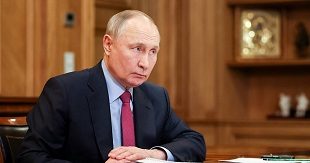
Paris, France | AFP | With disparate and at times conflicting responses to the deadly coronavirus outbreak, governments across the globe are abandoning any pretence of joint action and instead putting their own health, economic and diplomatic interests first, analysts say.
From the United States to Europe, governments have in recent days announced new border controls, suspended air traffic and rail links and banned travellers from countries deemed high-risk.
But with stock markets suffering their biggest one-day plunges in three decades and the spectre of recession looming large, world leaders must carefully weigh public health against a full-blown economic crisis, experts say.
“China and Italy have taken a gamble by giving priority to health. But balancing the economy is vitally important and underestimated,” says Anne-Marie Moulin, research director at the French National Centre for Scientific Research.
Economic analyst Juliette Declercq, founder of London-based JDI Research, said it is impossible to know the true impact of the actions governments are taking.
“The question now is how long the recession will last,” she said.
– Temptation to retreat –
Beyond economic interests, it is also diplomacy which hangs by a thread.
Even in the open and free-trade world of 2020, the temptation to withdraw to protect the national population in the face of a pandemic is great.
US President Donald Trump angered his European allies with a 30-day travel ban he said was an “aggressive effort” to protect Americans from a “foreign” virus.
While the European Union’s initial show of unity over the pandemic had promised a coordinated effort to save the economy, responses still differ from government to government.
European Central Bank chief Christine Lagarde on Thursday slammed “the complacency and slow motion process” of governments in the eurozone area in particular.
Perhaps in response to the ECB’s chiding, French President Emmanuel Macron late Thursday called for “a national and European stimulus plan”, saying measures announced by the ECB earlier in the day were not enough.
But for now, at a time when masks and hand sanitiser are harder to find, some countries such as Germany and France have banned the export of protective medical equipment.
EU countries such as Slovakia, the Czech Republic and Austria have put controls on their borders.
So how can governments protect their people without offending their economic partners?
This is perhaps a question that Iran took a little too long to ask itself at the beginning of the epidemic, by delaying taking action on Chinese travellers, one analyst said.
“The regime did everything it could to conceal the existence and spread of this virus when the whole world knew that China at the time was the centre of its spread,” Azadeh Kian, a political science teacher in Paris who specialises in Iran, told AFP.
“The Iranians continued to act as if nothing had happened for the sake of their relations with China.”
China “is a crucial partner to the Iranian regime, the biggest buyer of its oil. That explains why they did not take any measures,” Kian said, adding that it was “through the foreign media” that the population was able to learn about the extent of the epidemic in their country.
– Freedom vs health –
Governments are faced with an equally delicate trade-off between respect for individual freedoms and the fight against the spread of the virus.
“In the face of an epidemic, it’s a bit incongruous to let people do what they want,” says Moulin.
With its drastic containment measures, China seems to be getting the first results in curbing the epidemic.
“China is unique in that it has a political system that can gain public compliance with extreme measures,” said Lawrence Gostin, a professor of public health law at Georgetown University in the United States.
But “its use of social control and intrusive surveillance are not a good model for other countries”, he said.
The chaos surrounding cancelled sporting events perfectly illustrates the challenges governments face, said Vincent Chaudel, sports economist and founder of the Observatory of Sports Business.
“Holding events behind closed doors is the least worst option,” says Chaudel. “If it starts to reach the players in the game, it can change everything.”
 The Independent Uganda: You get the Truth we Pay the Price
The Independent Uganda: You get the Truth we Pay the Price


